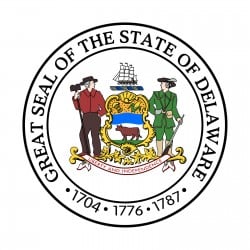The New York Attorney General has issued “Five Best Practices for Transparent Cause Marketing,” and strongly urges charities and companies that engage in cause marketing to adopt these recommendations, which have been endorsed by the Better Business Bureau Wise Giving Alliance, and adopted by Susan G. Komen For The Cure and Breast Cancer Research Foundation.[1] Given the regulatory authority that the New York Attorney General has over all charities involved in cause marketing campaigns in the state, the Attorney General hopes to see widespread adoption of these disclosures across the industry. While many of the disclosure provisions are in line with current industry best practices, we would like to call your attention to areas in which the Attorney General’s recommendations go further than any previously-articulated standards.
1. Clearly Describe the Promotion
Companies should clearly disclose the following key terms of any cause marketing promotion:
a. the name and mission of the charity receiving a donation;
b. the benefit the charity will receive from each purchase of the product or service;
c. any flat donation, minimum guarantee, or donation cap;
d. any consumer action required for the charity to receive the donation; and
e. the start and end dates of the campaign.
Many groups have already adopted the above disclosures as part of existing best practices in the cause marketing industry, most of which were previously established by the Wise Giving Alliance. The Attorney General recommends that these key promotional terms be displayed in a clear and prominent format and size, and close to the text used in marketing the promotion. The Attorney General has also put forth a template “donation information” label for disclosing key promotional details on products or websites. While standardizing the disclosure of material terms may be a helpful tool in providing consumers with consistent disclosures, companies may find it challenging to implement the recommended label format within the available product packaging space.
2. Allow Consumers to Easily Determine the Donation Amount
Companies should indicate that a fixed dollar amount per unit purchased will be donated to charity, to enable consumers to easily determine their charitable donation. If the campaign is not based on a set donation per unit sold, the Attorney General recommends using a fixed percentage of the sales price rather than vague statements such as that “profits” or “a percentage of proceeds” will be donated. This recommendation is also in line with existing best practices, and will hopefully help companies focus on not merely providing a truthful disclosure, but one that allows consumers to evaluate the actual impact of their purchase.
3. Be Transparent About What Is Not Apparent
The Attorney General recommends that companies disclose all facts related the cause marketing promotion that are not apparent to the consumer, such as:
a. Where a flat donation has been or will be paid to the charity, make clear that consumer action will not trigger a donation.
b. Make clear if the intended donation is an in-kind donation rather than a cash contribution, such as donating a book to a children’s literacy organization for every purchase made.
c. Where a ribbon, color, logo, or other indicia associated with a charitable cause is used in connection with a cause marketing campaign, the Attorney General recommends that the company clearly disclose whether a consumer’s purchase will trigger a charitable donation. If cause marketers are required to affirmatively state that no charitable donation will be made whenever an awareness symbol is used, this recommendation could have the effect of discouraging charitable awareness campaigns.
d. Where there is a set minimum guaranteed donation, there should be enough products available for sale to comfortably exceed the minimum donation.
e. Where there is a set cap on the donation, make sure the market is not flooded with products.
4. Ensure Transparency in Social Media
Companies conducting cause marketing campaigns via social media are encouraged to clearly disclose all terms of the social media campaign, including campaigns where a charitable donation is made without the purchase of any products or services, such as where a consumer “likes” a Facebook page, or follows a company’s Twitter feed. This recommendation moves beyond the typical focus on campaigns in which consumers purchase a product to benefit a cause. The Attorney General also recommends that companies provide a means for consumers to track the campaign’s progress in real-time, and alert consumers to the campaign’s end. This recommendation may be challenging to implement in promotions involving product sales (e.g., due to returns and other sales reconciliations).
5. Tell the Public How Much Was Raised
The Attorney General recommends that cause marketers and charities disclose the results of their campaigns on their websites soon after the completion of any cause marketing campaigns.This represents a newly-articulated industry best practice.This requirement could discourage companies from experimenting with innovative cause marketing campaigns for fear that post-campaign reporting will reveal poor sales results.
[1] Although the primary burden to comply with these best practices is on the for-profit cause marketers rather than their charitable beneficiaries, both parties need to be aware of the recommendations.








